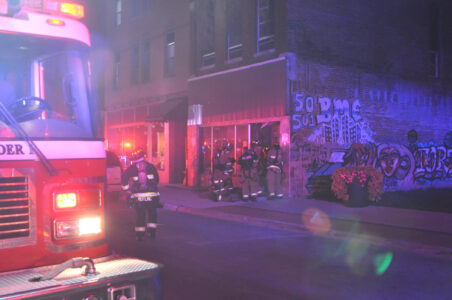Group moves to start EMS as essential service
Voters approved plan in March
A job description for a new Webster County employee who would be tasked with working with all local agencies that provide pre-hospital emergency care was approved Wednesday.
The approval was one of the first actions taken by the county’s Emergency Medical Services Advisory Council as it moves to implement EMS as an essential service.
The county voters made doing so possible on March 4 when they approved of designating EMS as an essential service and levying a property tax of 75 cents per $1,000 of taxable value to pay for it.
The EMS as an essential service proposal was approved by an 83 percent margin.
The levy, which is now being collected with property taxes due this fall, is estimated to generate $1.6 million a year.
The creation of an EMS coordinator position was part of the proposal put to the voters.
The new coordinator will not be in charge of all the county’s EMS agencies, according to Fort Dodge Fire Chief Matt Price. He said the new coordinator will help the leaders of those agencies, serving as an adviser on things like training, medical supplies and equipment, and complying with rules, regulations and standards. The individual will also be responsible for providing input to the Webster County Board of Supervisors.
The advisory council unanimously approved a job description Wednesday evening. That action sends the description to the Board of Supervisors, which will have the final say. Once the board approves the description, it will launch the search for the coordinator.
The council also approved a very basic framework for appropriating the money received from the new tax.
The final framework will be a bit different from what was presented to the voters early this year.
The plan presented to the voters called for dividing the bulk of the revenue between the three ambulance services in the county at that time — the Fort Dodge Fire Department, the Dayton Rescue Squad and Southwest Webster Emergency Medical Service in Gowrie.
In February, a month before the voters approved the essential service tax, the Otho Fire Department began operating an ambulance service.
Since that time the department has transported 90 percent of the patients it was called to help, according to Otho Fire Chief Marty Smith.
“We need to be included in the budget process,” he told the council Wednesday.
The plan presented to the voters also called for giving each of the volunteer fire departments that regularly provide care before an ambulance arrives up to $10,000 a year for medical equipment, training and supplies. That remains unchanged.




